Israel at war: What happened on day 53?
10 Israeli hostages returned to Israel on Tuesday, bringing the total released to 63.
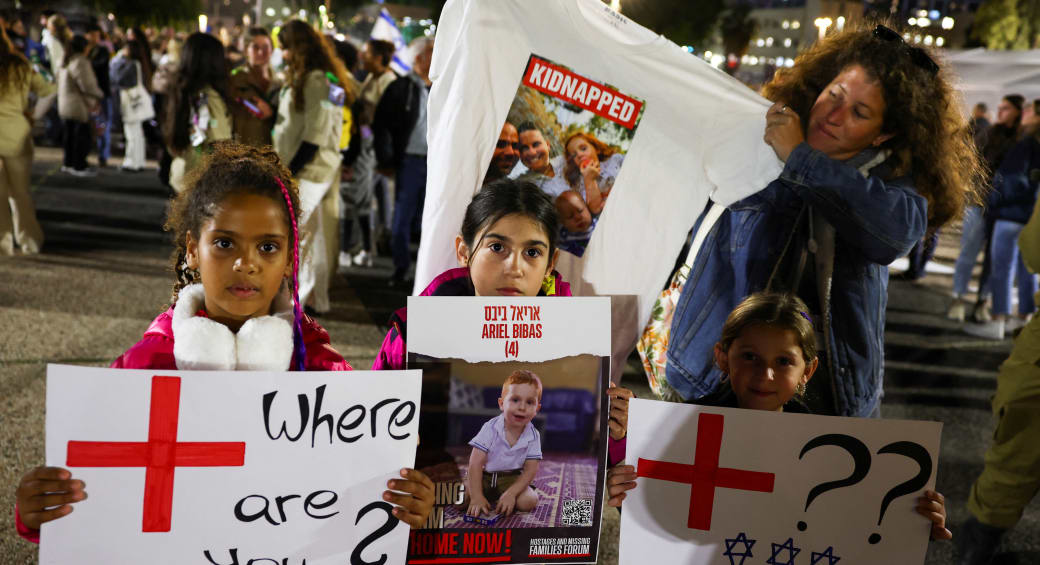

10 Israelis freed amid talk of long-term truce
Barnea, Burns in Qatar for talks • Blinken to visit in coming days
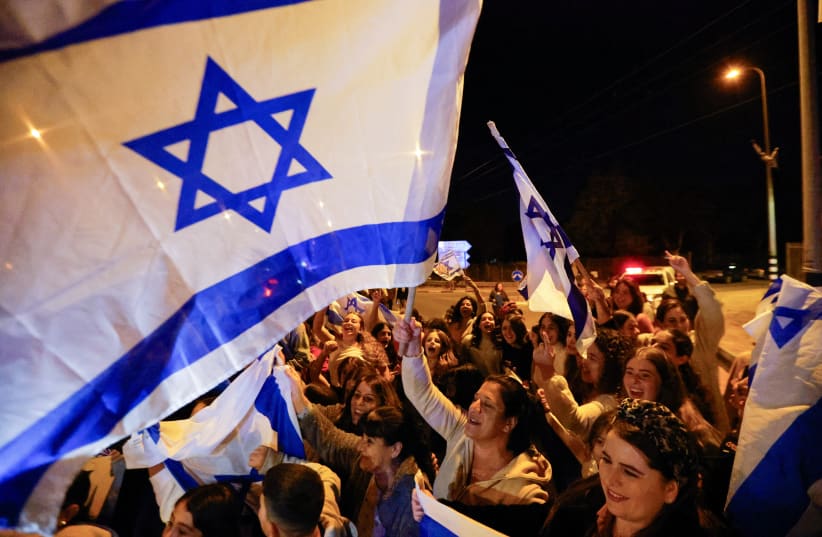
Ten Israelis and two Thai captives were freed amid media reports that Qatar sought to mediate a ceasefire deal to end the Gaza war in which the remaining 150 hostages would be returned, in exchange for the release of a large number of Palestinian security prisoners.
Finance Minister Bezalel Smotrich (Religious Zionist Party) rejected such reports outright, explaining that it’s not on the table and “there has been no discussion about it at all.”
Such a deal, he said, “is a plan to destroy the State of Israel. We will continue [the war] until with God’s help, we achieve absolute victory over the Hamas Nazis.”
Talk about a possible deal for all the hostages, including soldiers, came as US Secretary of State Antony Blinken was due to visit the region in the coming days and the security cabinet held a late-night meeting in Tel Aviv.
Discussions are already underway in Qatar to extend the hostage deal beyond its Thursday expiration date based on the formula by which Hamas frees 10 Israeli hostages in Gaza for every 24 hours of quiet.
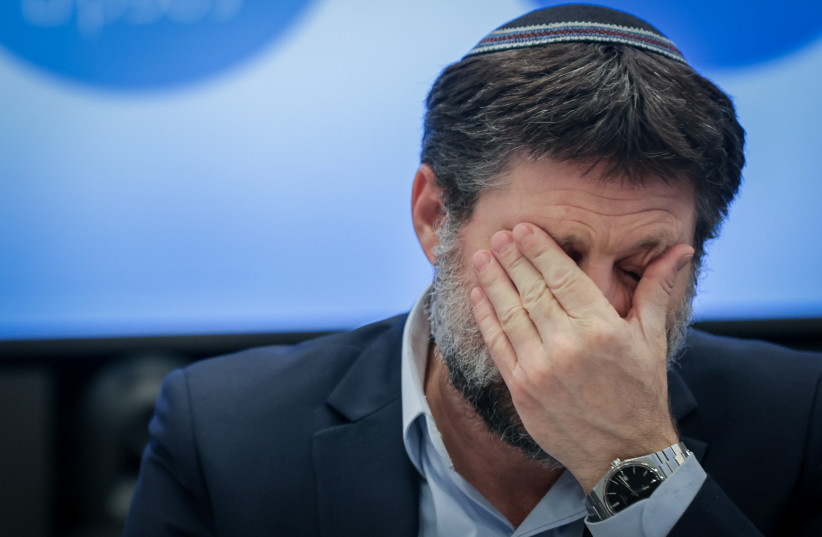
Officials remained committed to the deal even though Palestinians in Gaza placed explosive devices near IDF troops in northern Gaza, in violation of the hostage deal, according to the army spokesperson’s unit.
The initial mechanism by which hostages are freed in exchange for a lull in the fighting began on Friday at 10 a.m. and was first due to end on Tuesday, but at the last minute, the war was put on hold for another 48 hours.
As part of the deal, Israel has halted aerial surveillance above the enclave for some six hours daily to allow Hamas to locate all the hostages, which are held in separate locations by several different groups. The Pentagon said it has also paused its surveillance of Gaza during that same time.
The deal and its extension have focused on the 98 women and children that were among some 240 hostages that Hamas seized on October 7 when it infiltrated southern Israel.
To date, 60 female and child hostages have been released. Under a separate agreement, one Filipino and 25 Thai citizens have been freed, as was one Israeli who also holds Russian citizenship. Last month four women were also freed, two of whom were Americans and another two Israelis.
There are eight children still in captivity, including Ariel Bibas, who is four, and his 10-month-old brother Kfir.
On Tuesday night, the only child to be freed was Mia Lemberg, 17, who returned clutching a small white dog. Another 10 Israelis are due to be freed on Wednesday night.
Mossad chief David Barnea was in Qatar on Tuesday as was CIA chief William Burns and Egyptian intelligence chief Maj.-Gen. Abbas Kamel to discuss an extension of the deal, possibly through Sunday.
A source told Reuters that the spy chiefs were there to “build on the progress of the extended humanitarian pause agreement and to initiate further discussions about the next phase of a potential deal.”
But it’s also presumed that they are talking about a larger and wider scope resolution to the hostage crisis and the war.
Discussions with Qatar
Prime Minister Benjamin Netanyahu called Barnea in Qatar to discuss Tuesday’s hostage release, his office said, as it published a photograph of the call.
The question of what happens next week is particularly acute, given that a new mechanism would need to be found to free the male hostages, particularly the soldiers.
Under the existing deal, Israel agreed that for every captive in Gaza that was released, it would free three jailed Palestinian women and minors held on security-related offenses. To date, 180 such Palestinian prisoners have been freed, including 30 women and minors on Tuesday.
It’s expected that a larger number of prisoners and those with much more serious security offenses, including the killing of Israelis would need to be freed in exchange for the male hostages.
The Biden administration is under pressure from positions of the Democratic Party and the American public to support a permanent ceasefire. Many in the international community and Arab countries have also called for a halt to the war, particularly in light of Hamas assertions that over 14,800 Palestinians have been killed in conflict-related violence in Gaza.
The damage to the enclave from IDF aerial bombing and Israel’s closure of its two crossings into the Strip has also created a humanitarian crisis.
Israel has insisted that plans to resume the war once the hostages are released, so that it can complete its military campaign to oust Hamas from Gaza. It has been considered that Hamas poses an existential threat to Israel since the terror group’s October 7 attack, in which it killed over 1,200 people, burning, dismembering and raping its victims.
Netanyahu said on Tuesday, that Israel was committed to the following missions: “Freeing all of the hostages, eliminating this terrorist organization above and below ground and – of course – that Gaza must not return to being what it was, that it will no longer constitute a threat to the State of Israel.”
Israel’s allies have pressed it to do more to allow for humanitarian aid to enter Gaza, even though under the terms of the deal some 200 humanitarian trucks a day have entered and are expected to continue to enter the enclave. They have also warned Israel that it must do more to protect civilians should hostilities resume.
The US is asking Israel to take greater care to protect civilians and limit damage to infrastructure in any offensive in southern Gaza, senior US officials said, in what amounts to a more forthright approach to protecting Palestinians.
The message has been delivered from Biden on down, the officials told reporters on a conference call.
“We have reinforced this in very clear language with the government of Israel – very important that the conduct of the Israeli campaign when it moves to the south must be done in a way that is to a maximum extent not designed to produce significant further displacement of persons,” one official said.
At issue in particular has been the high number of Gazans, some 1.6 million in an enclave of 2.7 million, that have fled their homes due to IDF aerial bombings.
“You cannot have the sort of scale of displacement that took place in the north, replicated in the south. It will be beyond disruptive, it will be beyond the capacity of any humanitarian support network,” the official said, adding “It can’t happen.”
A US official said the first of three relief aid flights conducted by the US military would land in northern Sinai on Tuesday, with two more planned in the coming days.
The flights would bring medical items, food aid and winter items that would be delivered by the United Nations.
The officials said aid deliveries to Gaza were running at about 240 truckloads a day but this was nowhere near enough.
They said the effort would need to turn to commercial contracts to get deliveries up to 400 trucks a day and the US side had been discussing this with Israel.
Reuters contributed to this report.
Insider accounts of what went wrong in IDF intel before Oct. 7 - analysis
The Jerusalem Post has been provided multiple insider accounts of what went wrong.
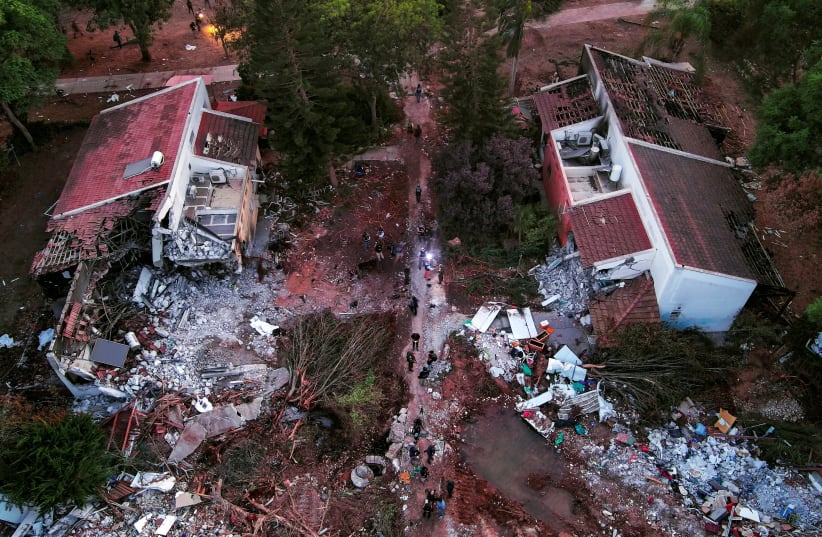
No one is waiting for the end of the Israel-Hamas war to lay blame for the failure to anticipate Hamas’s horrific October 7 invasion and slaughter of 1,200 Israelis, mostly civilians.
The Jerusalem Post has been provided multiple insider accounts of what went wrong in IDF intelligence which contributed to the failure.
Go to the full article >>Israel-Hamas deal: These are the 10 hostages released on Tuesday
The 10 were released as part of a two-day extension to the Israel-Hamas ceasefire.
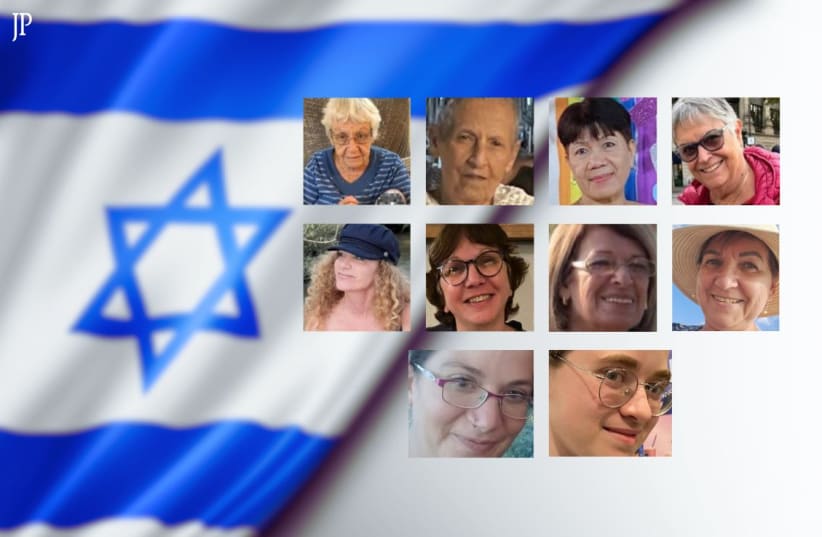
Israel has confirmed the identities of the 10 hostages that were released Tuesday evening, after 52 days of being held captive by Hamas in the Gaza Strip. The group is made up of mainly elderly hostages and certain family members.
An additional two Thai citizens were released by Hamas on Tuesday.
Go to the full article >>Tackling old diplomatic arguments in a post-Oct. 7 reality - comment
“Nothing can justify the indiscriminate brutality Hamas unleashed against civilians."
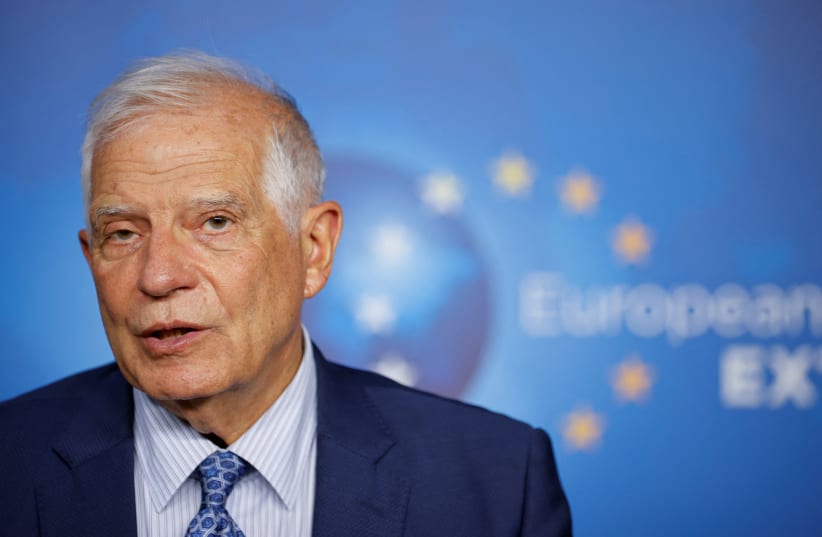
Israel did not send a representative yesterday to Barcelona to take part in an EU-sponsored event bringing together foreign ministers and diplomats from the EU countries and the Arab world.
As such, it missed out on hearing EU foreign policy chief Josep Borrell deliver a speech addressing the Israel-Hamas War. It really didn’t miss out on much, however, because Borrell’s speech was a predictable rehashing of old shibboleths and tired slogans that are irrelevant in a post-October 7 Middle East.
Go to the full article >>Biden, US officials ask Israel to be more cautious in south Gaza offensive
The US official said the campaign needed to avoid attacks on power and water infrastructure.
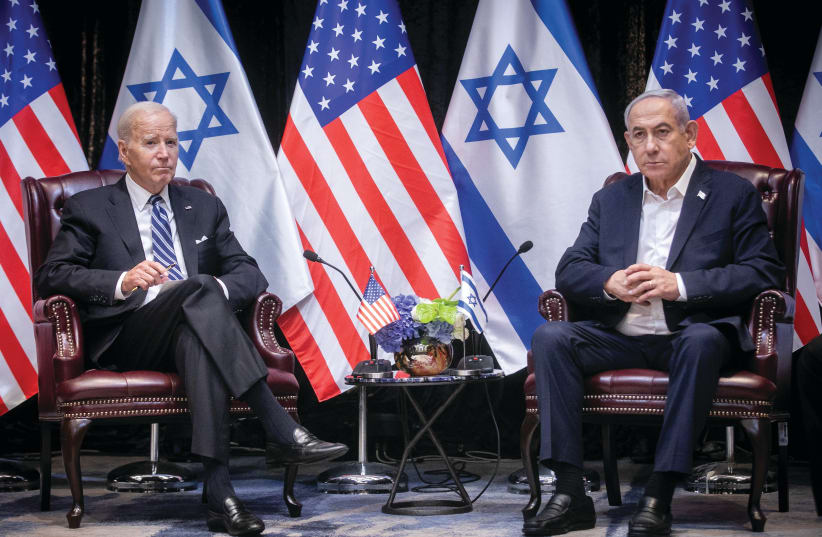
The US is asking Israel to take greater care to protect civilians and limit damage to infrastructure in any offensive in southern Gaza, senior US officials said, in what amounts to a more forthright approach to protecting Palestinians.
The move represents a distinct shift in Biden administration policy after strong domestic and international criticism. It comes a month after the White House said it had set no "red lines" for Israel's response to Hamas's October 7 attacks that killed 1,200.
Go to the full article >>Hamas rep.: We invite Elon Musk to see extent of Gaza destruction

A Hamas representative said on Tuesday they would invite Elon Musk to visit Gaza to see the "extent of the destruction caused on Gaza as a result of Israeli bombardment."
This is a developing story.
Go to the full article >>Red Cross begins receiving latest round of hostages

The Red Cross began receiving the latest round of hostages being released by Hamas on Tuesday, according to Israeli media.
Go to the full article >>Jordan's king says Israeli actions in Gaza and West Bank 'negate human values'

Jordan's King Abdullah said on Tuesday that Israel's military campaigns in Gaza and army operations in the West Bank "negate human values and the right to life."
In remarks carried on state media, the monarch who again called for an end to the war, said the Israeli siege on the enclave that prevented for weeks the entry of medicine, food, and fuel and cut electricity supplies, amounted to war crimes.
"These are war crimes.. we cannot stay silent," the monarch said.
Go to the full article >>Israeli defense firm Elbit ramps up output to meet demand for war
"Elbit Systems has ramped up its production in support of the Israel MOD."

Israeli defense electronics firm Elbit Systems said on Tuesday it had boosted supplies to Israel's military due to the country's war with Hamas militants, as it reported higher quarterly profit.
Elbit, one of Israel's largest defense contractors, said that over the past six weeks, it has had to contend with 2,000 of its staff, or 15% of its workforce in Israel, being called for reserve duty and that has slightly disrupted its supply chain.
Go to the full article >>UN aid chief heads to Jordan for talks to open second crossing into Gaza
Aid currently being allowed into Gaza comes through the Rafah crossing on the Egyptian border.
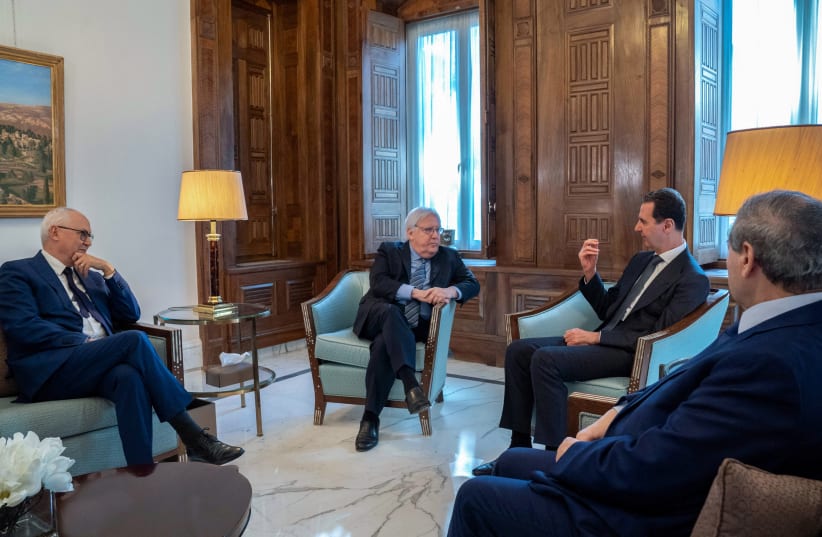
UN aid chief Martin Griffiths will travel to the Jordanian capital Amman on Wednesday for talks on the possibility of opening the Kerem Shalom crossing to allow for humanitarian aid to enter Gaza from Israel.
Located at the intersection of Israel, the Gaza Strip and Egypt, the Kerem Shalom crossing was used to carry more than 60% of the truckloads going into Gaza before the current conflict.
Go to the full article >>Israel-Hamas War: What you need to know
- Hamas launched a massive attack on October 7, with thousands of terrorists infiltrating from the Gaza border and taking some 240 hostages into Gaza
- Over 1,200 Israelis and foreign nationals were murdered, including over 350 in the Re'im music festival and hundreds of Israeli civilians across Gaza border communities